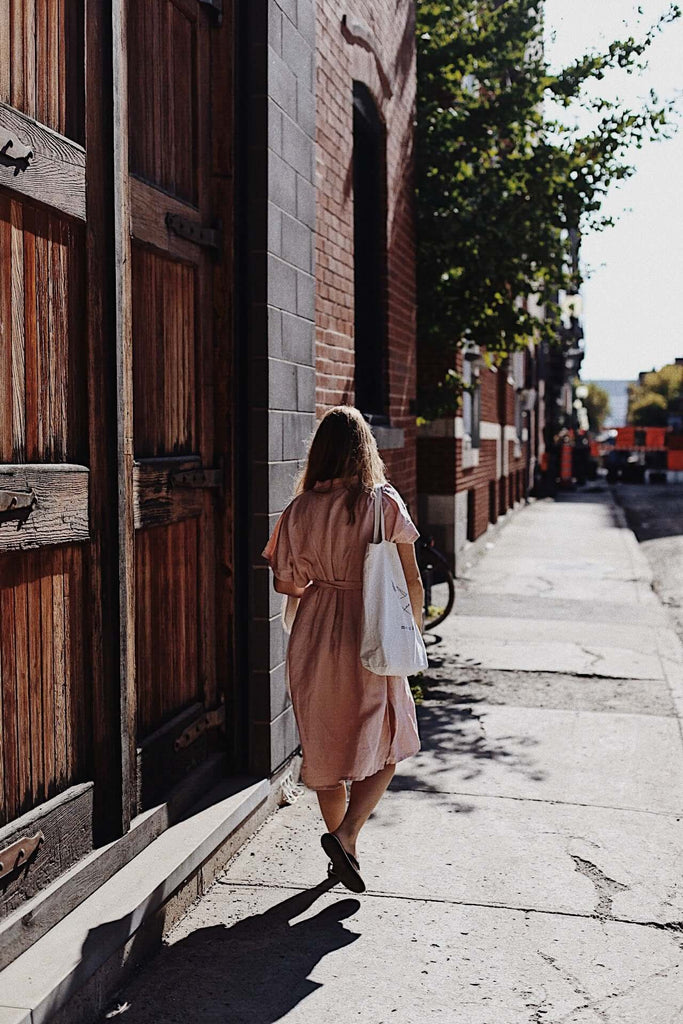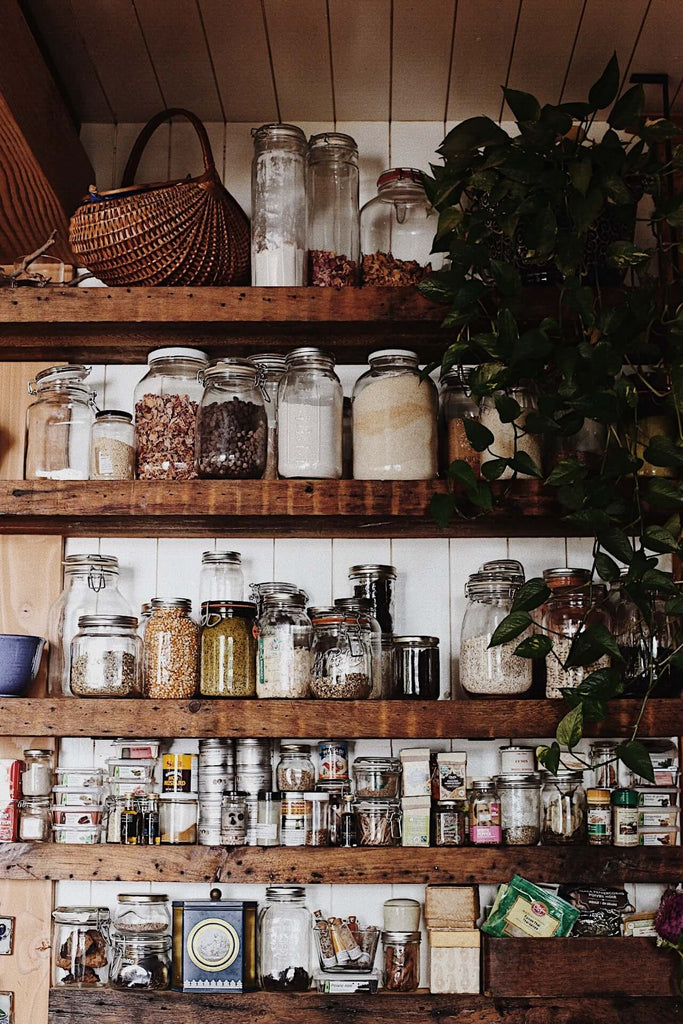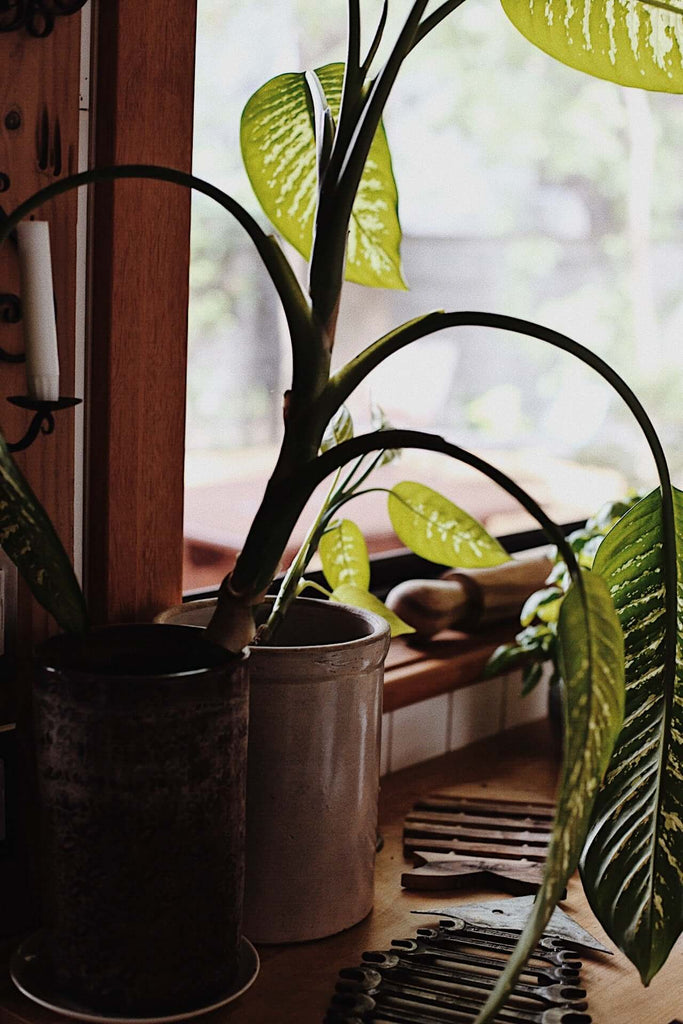Zero Waste is often though off and represented by the yearly waste produced by an individual or a family which would all fit into a mason jar. While this might be true for some people, it’s a far cry from other’s reality as well as our vision of what Zero Waste means. To be completely honest we find this representation of our lifestyle a bit unrealistic (for example we always see the amount of waste, not the recycling…)

This lifestyle has brought on its own string of questioning on different topics, which we were lucky enough to discuss with many other people from other sectors and whom all had different jobs than we do (financial analysts, entrepreneurs, osteopath, etc.) and it was great to see how this lifestyle suits everybody, not only one class of people. This was at a discussion-brunch session ‘Experts in residence’ that was set up by Espace pour la vie for the Program Humain and Nature Encounters.
The topic of discussion was the following: How can we dwell our homes. This topic diverged into many smaller questioning, such as, do we use all our space in our homes? Do we need all the objects we own? How can we transform our homes into eco-friendly homes (bulk purchases, second-hand purchases, local purchases, owning a car or not) etc.?

In our opinion, Zero Waste is about going above and beyond this. We try to make conscious choices depending on our life choices and events (keeping it balanced), but we’ve also started reflecting on our actions, considering if they are done out of habit, or if they are made through the influence society has on us or of the marketing companies who are good at what they do.
For example, a woman who was present at this even had reduced her working hours once she had figured how much money she actually needed to live comfortably. She now has the luxury to enjoy her free time and to do more of what she loves, like being more present in her community. She used to be too tired to do so when she was working full time. We could genuinely relate to this because we’ve also decided to slow the growth of our business down so we could enjoy our weekends with our families instead of working on the expansion of Dans le Sac. Another woman had completely removed internet from her home to truly disconnect and to prioritize human contact (hard to imagine doing the same eh!)

While these aren’t choices that can be made by all, depending on the type of job we have, but a reflexion should be made when it comes to what we buy and the time we spend working to pay for these precious objects we own. The way we spend our free time is just as crucial for our planet as it is for our well-being. Plus, if you pick up a hobby, or find something you are passionate about, you’ll be less inclined to spend your free-time shopping around to keep busy (oh hey late online shopping friends ;) !)
It’s hard enough when society tells us over and over again how the number of things we own defines us. Take a look at any publicity out there, and you’ll see this hidden message! But there is absolutely no truth in the fact that your self-worth is increased by the brand of your car or the number of clothes you own. Stay alert, and always question your purchases, keep an eye out for subliminal messages hidden by companies who spend a fortune in marketing businesses to do so. You do not need those products to find your happiness. They are often the culprits behind our impulse buys!
Here’s a list of tips from all of us to reduce your ecological footprint:
- Share between families instead of all buying individually
- Buy in bulk
- Buy locally, and in season whenever possible
- Stay alert and beware of false green marketing (marketing that makes you believe it’s a natural or eco-friendly product)
- Be a part of your community to make more people aware
- Reduce the use of your vehicle
- Purchase more things with more people to reduce the packaging
- Make your household products or make-up/cosmetics
- Do a gift exchange for Christmas instead of offering every person a gift, or offer some time spent together instead of a material gift.
- Recycle properly and compost at home
- Clean out your house and give whatever we do not use
- Make your lunches at home
- Vote when election time comes around, make sure you read up on the values you share with the party you vote for
- Share your green-living tips with your family and friends (we are all tiny ambassadors for the cause)

See, there are thousands of ways to live in your space that doesn’t require a label (minimalist, zero waste, activist, etc.) to start talking about how you can transform your home into a greener space, many actions can be put in place to make it eco-friendly. It’s for your own good, as well as for the planets.
We wish to thank Espace pour la vie for the invitation to this lovely brunch-discussion event. It’s always a great time when we get away from our computers to talk to other humans;)!


